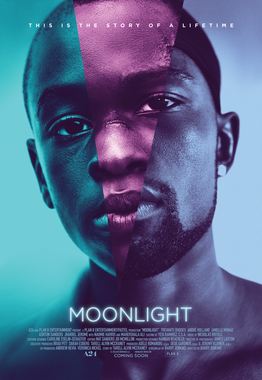 For years now, film fans have grown used to the idea of LGBT representation at the Oscars. It’s typical for the Academy to highlight issues (such as LGBT rights) that are viewed as being progressive, even if there have been some problems regarding the Oscars’ lack of diversity over the years. But while those in attendance tend to give themselves nice pats on the back for applauding scenes, actors, and crew members from films addressing LGBT issues, these same films have been falling short of the top prizes for quite some time.
For years now, film fans have grown used to the idea of LGBT representation at the Oscars. It’s typical for the Academy to highlight issues (such as LGBT rights) that are viewed as being progressive, even if there have been some problems regarding the Oscars’ lack of diversity over the years. But while those in attendance tend to give themselves nice pats on the back for applauding scenes, actors, and crew members from films addressing LGBT issues, these same films have been falling short of the top prizes for quite some time.
This has led to many feeling that films dealing with LGBT subjects are often “snubbed” by the Academy in much the same way actors of color often seem to be. The most glaring example from recent years was Carol, a 2014 film about a relationship between two women in 1950s New York. Even after winning the prize for Best Drama at the Golden Globes, Carol was left out of the Oscars’ Best Picture conversation even within a massive field of contenders, prompting one writer to refer to it as “the real standout snub” in a list of nine perceived injustices. That particular writer didn’t make any accusations regarding subject matter, but the sub certainly contributed to the feeling that an LGBT-centric film could only go so far.
It isn’t the only example from recent years. Brokeback Mountain, arguably the most significant LGBT-related film of the century (perhaps until Moonlight), earned a nomination for Best Picture but failed to win, though Ang Lee did win Best Director for his work on the project. In the next few years, Milk (2008) and The Kids Are All Right (2010) were also nominated for Best Picture but only got so far as the nominations. All of these movies were very recognizable at their respective Oscars, and yet none managed to take home the biggest hardware. Many felt that at least one or two of them were deserving, with Brokeback Mountain perhaps having had the best chance. Crash, which took the 2006 prize over Brokeback Mountain, is still regarded as one of the biggest Oscars surprises of all time.
This year brought about a surprise in the other direction, with a film deeply tied to the LGBT community earning a surprise win in the category that had so long eluded such projects. La La Land was an Academy Awards behemoth, with one site posting odds for various sports and entertainment categories indicating it had strong odds to win the top award heading into the show. And for a moment, it did seem to win the award, before a mistake was corrected and Moonlight was announced as the Best Picture winner. To put that in sharper perspective, a $1 million budget movie about the coming of age of a young, gay, black man in Miami won Best Picture over a legitimate Hollywood juggernaut. It wasn’t just an upset, but an upset it felt like we’d all been waiting on for years.
This alone changed the game for the Academy Awards moving forward. While LGBT representation has not at all been shunned by the Academy, at least in the last decade or two, there is now a precedent for a film with this type of subject matter to win the biggest prize in cinema. Throw in the quality of the movie itself—the way it really made you understand a young boy’s struggles, rather than simply showing them to you—and it feels like one of the bigger events in Hollywood this century so far.
__________________________________________________
If you enjoy reading Diversity Rules Magazine, please consider subscribing, advertising or investing in its future.


Review: http://www.glreview.org/article/talk-like-a-man/